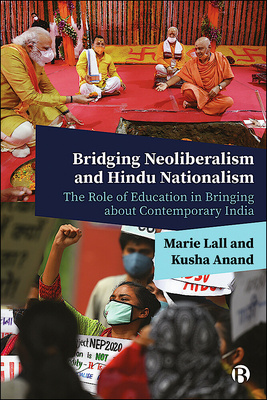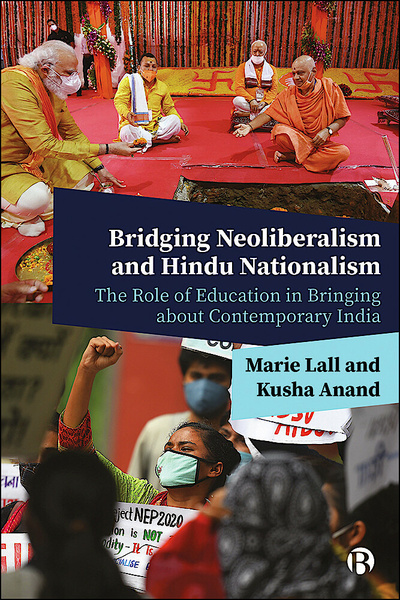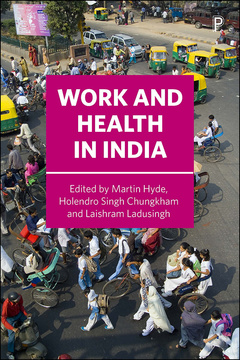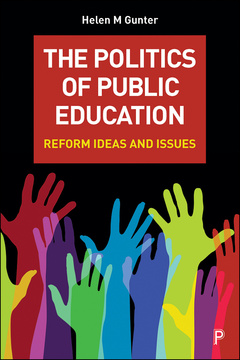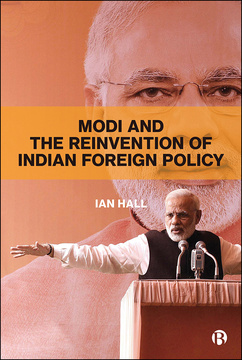Bridging Neoliberalism and Hindu Nationalism
The Role of Education in Bringing about Contemporary India
By Marie Lall and Kusha Anand
Published
Sep 30, 2022Page count
336 pagesISBN
978-1529223224Dimensions
234 x 156 mmImprint
Bristol University PressPublished
Sep 30, 2022Page count
336 pagesISBN
978-1529223217Dimensions
234 x 156 mmImprint
Bristol University PressPublished
Sep 30, 2022Page count
336 pagesISBN
978-1529223231Dimensions
234 x 156 mmImprint
Bristol University PressPublished
Sep 30, 2022Page count
336 pagesISBN
978-1529223231Dimensions
234 x 156 mmImprint
Bristol University PressOn our blog: Women in academia and practice: Marie Lall
India will soon be the world’s most populated country and its political development will shape the world of the 21st century. Yet Hindu nationalism – at the helm of contemporary Indian politics – is not well understood outside of India, and its links to the global neoliberal trajectory have not been explored.
Covering 30 years of Indian politics, this book shows for the first time the importance of education in propagating the acceptance of Hindu nationalism within a neolberal system, including the reframing of the concept of Indian citizenship.
The first five years of Modi rule failed to bring about the development that had been promised and have seen India’s rapid change from a largely inclusive society to one where religious minorities are denied their basic rights.
“An impressive analysis of the links between the impact of neoliberalism and the market economy in India and rise of Hindu nationalism and populism seen through the lens of education policy and practice.” Philip G. Altbach, Boston College
“Neoliberal policies and the rise of Hindu nationalism have dramatically affected education in India over the last three decades. This book says why and how by analysing mechanisms of social exclusion and saffronisation in different states and at all levels – including higher education. A must read!” Christophe Jaffrelot, King’s College London
“Unravels the nuanced connection between Hindutva politics and neoliberal-influenced education reform in the context of a complex and a highly diverse society with an aspiring middle class that prevails in India. A commendable feat.” Saumen Chattopadhyay, Jawaharlal Nehru University
Marie Lall, FRSA, is Professor of Education and South Asian Studies at the UCL Institute of Education, UK. She has 30 years of experience in the region and has worked with the World Bank, UNICEF, the British Council, AUSAID, South Asian philanthropic bodies as well as government ministries in South Asia and internationally. In 2019 she was named one of the 100 most influential people on UK-India relations at the House of Commons. This is her 12th book.
Dr Kusha Anand is Research Fellow at the UCL Institute of Education. Dr Anand works on the intersections of race, identity, ethnicity, citizenship and education, mainly in India, Pakistan, Bangladesh and the UK.
Introduction
1. The Role of Post-Colonial Politics In re-Theorizing India’s National Identity
Part 1: Education and Ideology
2. Hindu Nationalism Versus Secularism and the Social Realities of Discrimination
3. India’s Neoliberal Schools: The Hindu Nationalist and Neoliberal Agenda in School Education
Part 2: The Effects of Neoliberalism on Teachers and Higher Education
4. Teachers’ Voices: Neoliberal and Hindu Nationalist Agendas in School Education in Delhi, Mumbai, Chandigarh, Bengaluru, Jaipur and Assam
5. Higher Education, Neoliberalism and Hindu Nationalism
Part 3: Whither India?
6. The Effects of the Indian Political Choice Model on Citizenship Under the BJP Modi Government
Epilogue: India at 75







